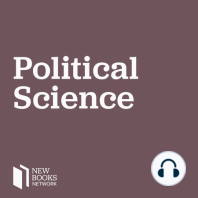125 min listen

Sushmita Nath, "The Secular Imaginary: Gandhi, Nehru and the Idea(s) of India" (Cambridge UP, 2022)
Sushmita Nath, "The Secular Imaginary: Gandhi, Nehru and the Idea(s) of India" (Cambridge UP, 2022)
ratings:
Length:
63 minutes
Released:
Nov 23, 2022
Format:
Podcast episode
Description
Given the popularity and success of the Hindu-Right in India’s electoral politics today, how may one study ostensibly ‘Western’ concepts and ideas, such as the secular and its family of cognates, like secularism, secularisation and secularity in non-Western societies without assuming them simply as derivative, or colonial legacies or contrast cases of Western societies? While recognizing that the dominant language of political modernity of Western societies is not easily translatable in non-Western societies, The Secular Imaginary elaborates upon an intellectual history of secularity in modern India by focusing on the two most influential political leaders – M.K. Gandhi and Jawaharlal Nehru. It is an intellectual history of both idea(s) and intellectuals, which sheds light on Indian narratives of secularity – the Gandhian sarva dharma samabhava, Nehruvian secularism, and unity in diversity. It revisits this dominant narrative of secularity of the twentieth century that influenced and shaped the imagination of the modern nation-state.
Tiatemsu Longkumer is a Ph.D. scholar working on ‘Anthropology of Religion’ at North-Eastern Hill University, Shillong: India.
Learn more about your ad choices. Visit megaphone.fm/adchoices
Support our show by becoming a premium member! https://newbooksnetwork.supportingcast.fm/political-science
Tiatemsu Longkumer is a Ph.D. scholar working on ‘Anthropology of Religion’ at North-Eastern Hill University, Shillong: India.
Learn more about your ad choices. Visit megaphone.fm/adchoices
Support our show by becoming a premium member! https://newbooksnetwork.supportingcast.fm/political-science
Released:
Nov 23, 2022
Format:
Podcast episode
Titles in the series (100)
Jason K. Stearns, "The War That Doesn't Say Its Name: The Unending Conflict in the Congo" (Princeton UP, 2022): An interview with Jason K. Stearns by New Books in Political Science